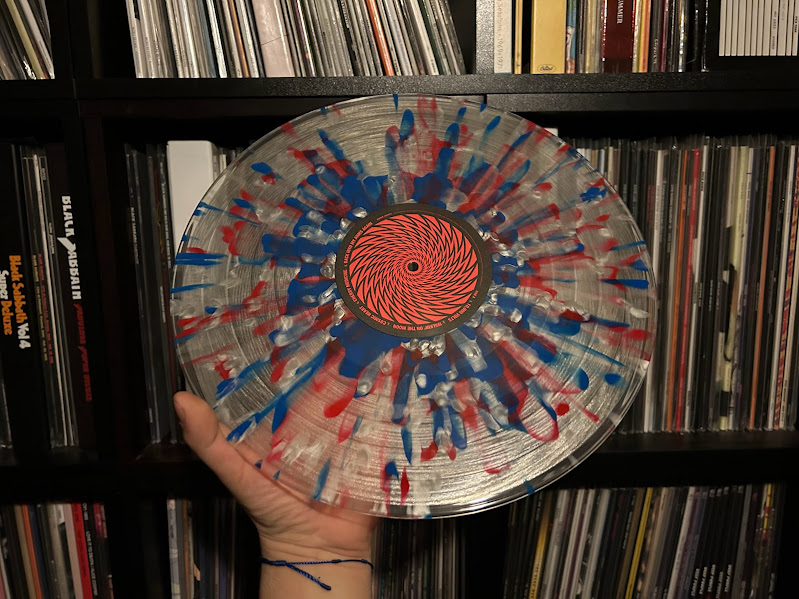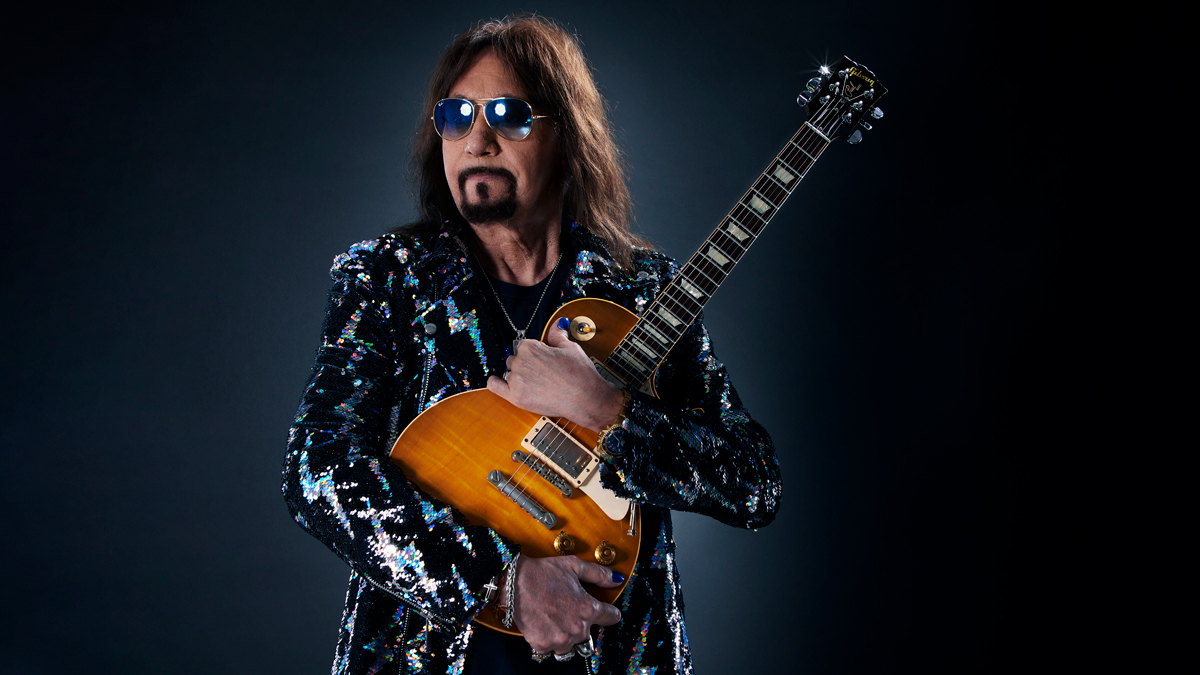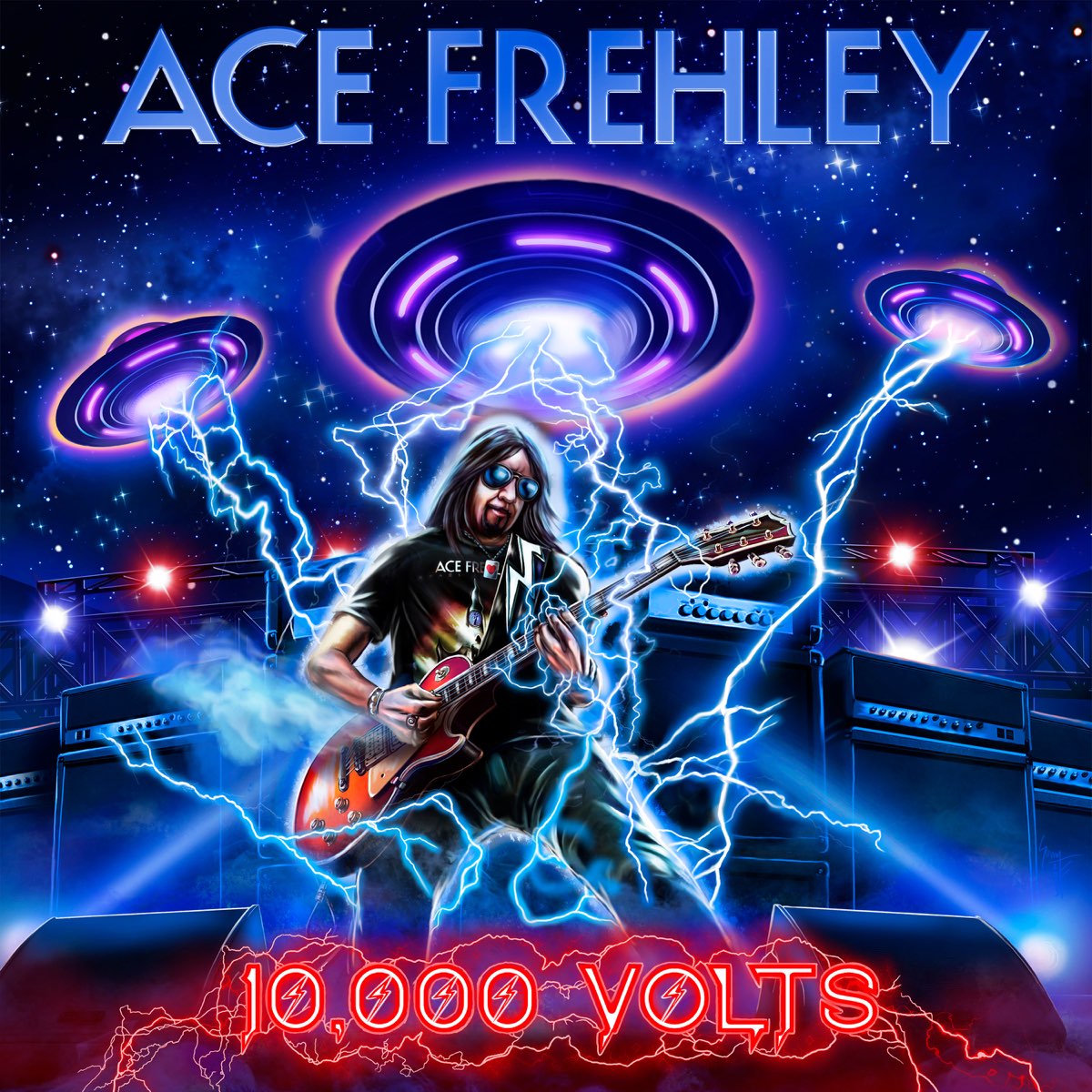Ace Frehley Still Electrifies with “10,000 Volts”
KISS’ original guitarist releases his best solo album in decades
The pantheon of guitar gods from the 1970s consists of the usual players that come to mind: Jimmy Page, Tony Iommi, and Ritchie Blackmore, just to name a few. Best known for being the original guitarist in KISS and adopting the makeup persona of “The Spaceman,” Ace Frehley is a self-described anomaly. His unorthodox approach to guitar playing left a mark on teenagers who spent their adolescent years learning his solos note-for-note. KISS’ on-stage theatrics enabled Ace to pioneer stunts like smoking humbuckers and shooting rockets out of headstocks. Between his distinguishable style and showmanship, Ace Frehley’s qualities as a guitarist are, in a phrase, out of this world.
.jpg)
Ace’s first foray into solo material came about in 1978 when all four KISS members released eponymous solo albums on the same day, his album selling the best out of the four due to his cover of “New York Groove” becoming a Top 20 hit. This leverage and KISS’ direction deviating from their hard rock roots to disco and pop territory contributed to Ace’s decision to leave the group in 1982. His first post-KISS project was forming the group Frehley’s Comet, resulting in two albums (self-titled debut and Second Sighting) and the MTV video hit “Rock Soldiers.” The group’s dissolution forced Ace to purge along with his solo career, releasing Trouble Walkin’ in 1989. Everything was put on the back burner in 1996 when the original KISS lineup reunited until 2001. Since 2009, Ace has been on a prolific streak, releasing Anomaly, Space Invader, Spaceman, and Origins Vol. 1 and 2. He’s in his early 70s and with the release of his newest solo album, 10,000 Volts, shows no signs of slowing down.
The phased lead guitar on the opening title track lures the listener in and kicks the album into high gear. It’s a hard-driving track with an infectiously melodic pre-chorus. Instead of a steady rhythm, “Walkin’ on the Moon” comes across as a swaying shuffle. While ominous at moments, “Cosmic Heart” has an element of sensational swagger with the anthemic gang vocals in the chorus. The “Cherry Medicine” verses are steady and pulsating, and the chorus is memorable. The lyrical reference to “black leather” traces back to Ace’s signature song with KISS, “Shock Me.” The mid-paced “Back Into My Arms Again” paces the album’s flow with its sweet acoustics. Its inclusion on the album brings the track full circle since it germinated from the Frehley’s Comet era as a lost demo. After several listens, it's arguably one of Ace’s best songs.
Kicking off Side 2 is the album’s heaviest track, “Fightin’ for Life.” Ace’s vocal delivery is passionate, and the song’s arrangement is delivered with a sense of urgency, especially the frantic double-kick drum part during the song’s outro. The guitar/cowbell combination on “Blinded” will put a smile on any KISS fan's face, similar to the intro of the KISS staple, “Calling Dr. Love.” Lyrically, it is a warning about the risks of artificial intelligence; it’s a fitting song for modern times. “Constantly Cute” is a fun track, but the lyrics are at their cheesiest on this album, with mentions of… smiling taste buds? Cover songs are almost permanent staples of Ace’s albums, the one on this album being “Life of a Stranger.” The original version by R&B singer Nadia for the Transporter soundtrack retransforms itself to a power ballad with a histrionic string arrangement. The pace picks up with the lively “Up In The Sky,” an ode to extra-terrestrial discovery. The spacey sound effects and the cascade of arpeggiated acoustic guitars and electric guitar leads make “Stratosphere” one of the most atmospheric and beautiful Ace Frehley instrumentals.
Ace Frehley is the kind of artist who knows what he provides to the table and works with a formula that's effective. His last album of original material, 2018’s Spaceman, had generally good songs, but self-producing lends itself to the songs benefitting from some extra fairy dust. Steve Brown of Trixter, a long-time fan of KISS/Frehley, stepped into the producer’s chair and contributed fresh ideas that would best suit Frehley’s artistry. The collaboration of Frehley/Brown results in 10,000 Volts having variety, melodic hooks, and the finest production value on an Ace Frehley album. The songs retain a heavy edge with a slight pop sensibility, similar to his contributions to the KISS albums Dynasty and Unmasked. With all things considered, fans have raised concern over how much compositional/performing input Ace had on the record versus Steve Brown’s immense contributions. To quote KISS frontman Paul Stanley, “the sum is much more important than the parts.” A good record is a good record; case closed.
The KISS vinyl collecting hub is rabid. Between pressings from different countries, label variants, or colored vinyl, collectors will see anything as fair game. MNRK Heavy had their pulse on this by pressing up fifteen (that’s right, FIFTEEN) different vinyl variants of 10,000 Volts on various colors, along with a few alternate jackets. The vinyl presentation is an all-around out of the park knockout with eye-catching cartoonish artwork, a gatefold design, a printed inner sleeve with a photo collage and lyrics, and the vinyl housed in a poly-lined sleeve. One of the copies I possess, specifically the one used for this review, is on clear vinyl with red, blue, and silver splatter, which fits with the color scheme of the artwork. The colored variants are catered to any consumer’s preference unless you’re the type of collector possessing all fifteen copies!

Modern-day hard rock albums run the risk of not translating well on vinyl due to excessive uses of compression. The production value of 10,000 Volts is arguably the slickest of any Ace Frehley album, translating well to the grooves. The midrange is warm, and the bass definition provides plenty of depth. One can listen to the album digitally and appreciate the album at face value. The vinyl pressing reveals the intricate layers of each song’s specific arrangement, such as percussive flourishes and acoustic guitars intentionally buried in the mix to provide crisp tonality to the grittiness of the electric guitars.
Ace Frehley’s 1978 eponymous solo album was and always will be the benchmark. All his other albums had moments of brilliance, but nothing to the consistent firing of all cylinders on 10,000 Volts. Dare I say it, it’s his best album in decades. Ace said it best on “Rock Soldiers”: “Ace is back, and he told you so.”










































.png)








